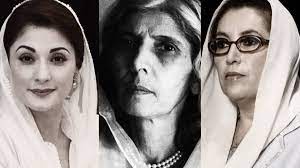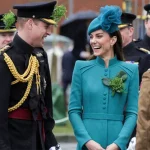The general election on February 8, 2023, will be remembered for the extraordinary number of strong women who, despite the poisonous patriarchal hegemony that pervaded Pakistani politics, society, and the parliament, dared to dream and had the desire to end up in a position where the destiny of the nation was decided.
More than 3,000 female candidates have submitted nomination papers for seats in the national and provincial assemblies in Pakistan’s male-dominated general election.
Despite social and cultural restrictions that prevent women from actively participating in politics, female politicians running as independents and members of several political parties will take on their male counterparts.
It is inevitable that more women will participate in political politics in order to create inclusive decision-making processes and laws that are focused on the needs of women.
In addition to reserved seats, political parties are now required by the election changes to provide a 5% representation of female candidates in general seats.
Compared to the male members of the parliament, the number of female politicians running for general seats has grown throughout time, but it is still rather small.
According to the Free and Fair Election Network (FAFEN), in the 2018 general election, around 46.89% of registered women voters cast their ballots for the National Assembly (NA) seats, compared to 56.07% of registered men voters.
The rate at which women are registering to vote has increased during the last five years. Women as voters increased by 27%, from 46.7 million in 2018 to 59.3 million in 2024.
The Pakistan Peoples Party (PPP) has given 23 of its female candidates tickets for the general election of 2024: 10 for NA seats and 13 for provincial legislatures (PAs).
Pakistan Tehreek-e-Insaf (PTI) has given NA tickets to 21 female candidates, according to preliminary data gathered by FAFEN. However, it is difficult to gather data on provincial assembly because the party no longer has its famous electoral symbol, the cricket bat.
However, the Pakistan Muslim League-Nawaz (PML-N) has given its female candidates 16 party tickets: 12 for NA and 4 for PA constituencies.
Ten tickets have been given to female candidates for the Jamaat-e-Islami, while two tickets have been provided to women by the Jamiat Ulama-e-Pakistan Fazl (JUI-F) for the NA and nine tickets for the provincial assembly seats.
Senior analyst Benazir Shah told Geo.tv that major political parties were reluctant to give women tickets for general elections.
She points out that because of a 5% criterion set by the Election Commission of Pakistan (ECP), or because they are weak candidates, political parties have given tickets to several female candidates in underrepresented areas.
Second, the analyst emphasized that the main obstacle preventing women from running for office or entering politics is the existence of a misogynistic and sexist society, especially during electioneering.
Even after they [women] are elected to the parliament, “this [misogyny] continues, where even very senior politicians make sexist comments and specifically target women,” she continued.
Nevertheless, a number of female politicians have defied all barriers to establish themselves in constituency politics.
An positive trend in the 2024 elections is the presence of female politicians, such as Maryam Nawaz and Aseefa Bhutto Zardari, who are the scions of the Bhutto and Sharif families, respectively, spearheading the campaign alongside their male counterparts.
Given that many of their male relatives are either in jail or have absconded in various cases, the beleaguered PTI has curiously fielded a large number of female candidates for general seats in this year’s general elections.






